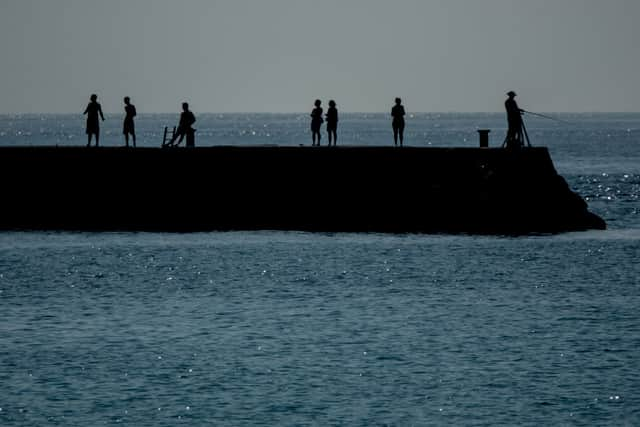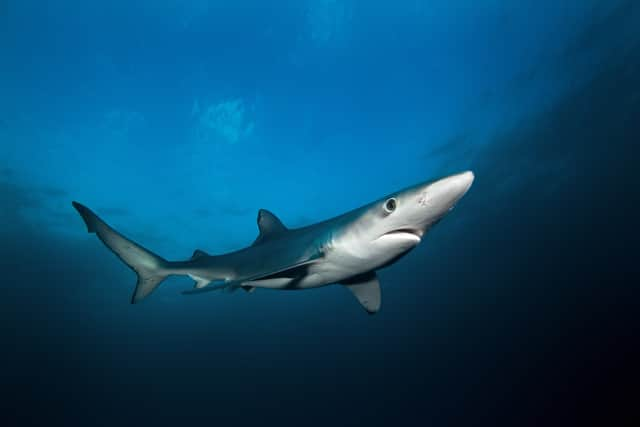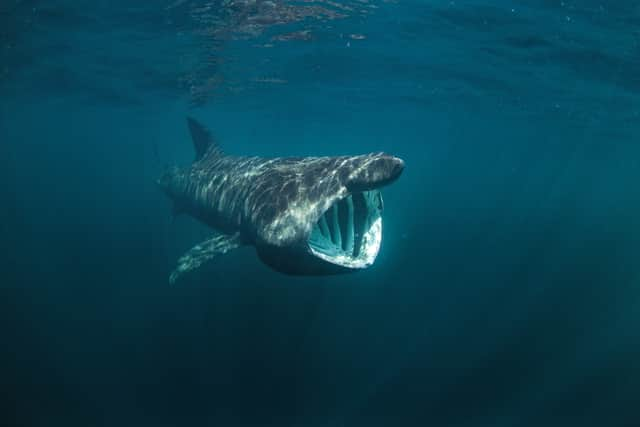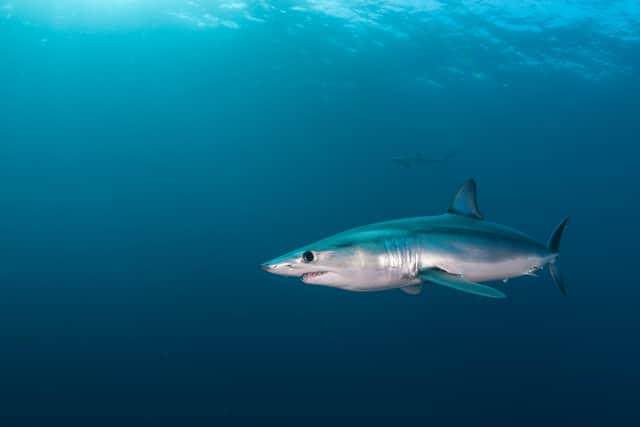Shark attacks UK: how common is an attack off British coasts like Cornwall, which sharks can populate waters?
This article contains affiliate links. We may earn a small commission on items purchased through this article, but that does not affect our editorial judgement.
and live on Freeview channel 276
A swimmer snorkelling off the coast of Cornwall has been involved in a suspected shark attack after suffering from a bite to the leg.
The incident has been described as a “freak event”, with the victim stating that they didn’t want it to “tarnish the reputation of an already persecuted species”.
This is what you need to know.
What happened in Cornwall?
Advertisement
Hide AdAdvertisement
Hide AdLast Thursday, (28 July) a snorkeler was involved in a suspected shark attack in what they described as a “very scary incident” off the coast of Cornwall.
The swimmer suffered a bite to the leg and required help from HM Coastguard and ambulance crews following the encounter near Penzance.
The HM Coastguard said that it was notified of the attack just before 12:30pm, and that the “coastguard team met the casualty at Penzance harbour to assist with passing them into the care of the ambulance service”.
The victim was reportedly bitten by a blue shark whilst on a snorkelling trip.


Advertisement
Hide AdAdvertisement
Hide AdBlue Shark Snorkel Trips, the company that organised the tour, said such incidents were “extremely rare” and that they were “in continued talks with shark experts” in a bid to figure out what happened.
In a statement posted to its Facebook page, the company said: “We want to make everyone aware that we have had an incident.
“These occurrences are extremely rare and can be easily misunderstood so we want this to be dealt with as sensibly as possible.
“As we know, these things can happen when we choose to interact with wild animals in their own environment. The last thing we want is to let speculation drive the media into a world of bad press for the sharks, under no fault of their own.
Advertisement
Hide AdAdvertisement
Hide Ad“We immediately enacted our emergency response plan, with first aid being carried out on the person involved.


“Following advice and assessment from the coastguard, the person walked off the boat and received further treatment ashore.”
The firm also shared a statement from the victim, who said: “Despite how the trip ended, it was amazing to see such majestic creatures in the wild and I don’t for a second want this freak event to tarnish the reputation of an already persecuted species.
“Wanted to thank everyone for their amazing actions. What was a very scary incident was made so much easier by the kindness and calmness of the people around me.”
What sharks are there in UK waters?
Advertisement
Hide AdAdvertisement
Hide AdAccording to UK charity Shark Trust, the coasts of Britain are home to over 40 species of sharks, including some of the “fastest, rarest, largest and most highly migratory in the world”.
At least 21 species of sharks live in UK waters all year round, including the Smallspotted Catshark and the Nursehound. As well as these 21 resident sharks, there are also at least 11 different deepwater shark species, such as the Portuguese Dogfish, Black Dogfish, Kitefin shark and Gulper shark.
During the warmer months, we also have some seasonal visitors as well, like the Basking shark, who you’re most likely to spot between May and October around the British Isles.
Other seasonal visitors also include the Blue shark and Shortfin Mako.


Advertisement
Hide AdAdvertisement
Hide AdWe also have other occasional visits from the likes of the Smooth Hammerhead and Frilled shark.
The Shark Trust says: “There’s much debate about whether White sharks are in British waters. But, as exciting as that would be, it’s very unlikely.
“There has been no confirmed sightings or strong evidence to suggest they’re here. Yet, British waters do provide good conditions for White Sharks, so it’s not impossible.
“The closest confirmed report was of a female White Shark, captured in 1977 in the northern Bay of Biscay – 168 miles off Land’s End, Cornwall.
Advertisement
Hide AdAdvertisement
Hide Ad“In 2014, a tagged White Shark called Lydia was documented as the first of her species to cross the Mid-Atlantic Ridge. Although she was still 1,000 miles from British shores.”
How common are shark attacks in the UK?
Shark attacks in the UK are extremely rare, with the Shark Trust stating that there have been “no unprovoked shark bites in British waters since records began in 1847”.
The charity adds: “Only a few sharks are potentially dangerous to humans. None of these have ever been reported in British waters.”


However, the Shark Attack Database does list a few shark attacks that have occured in the UK, with 16 unprovoked attacks between 1785 and 2016.
Only one incident was fatal, involving a swimmer in Hornsea, East Yorkshire, in 1922.
Comment Guidelines
National World encourages reader discussion on our stories. User feedback, insights and back-and-forth exchanges add a rich layer of context to reporting. Please review our Community Guidelines before commenting.
